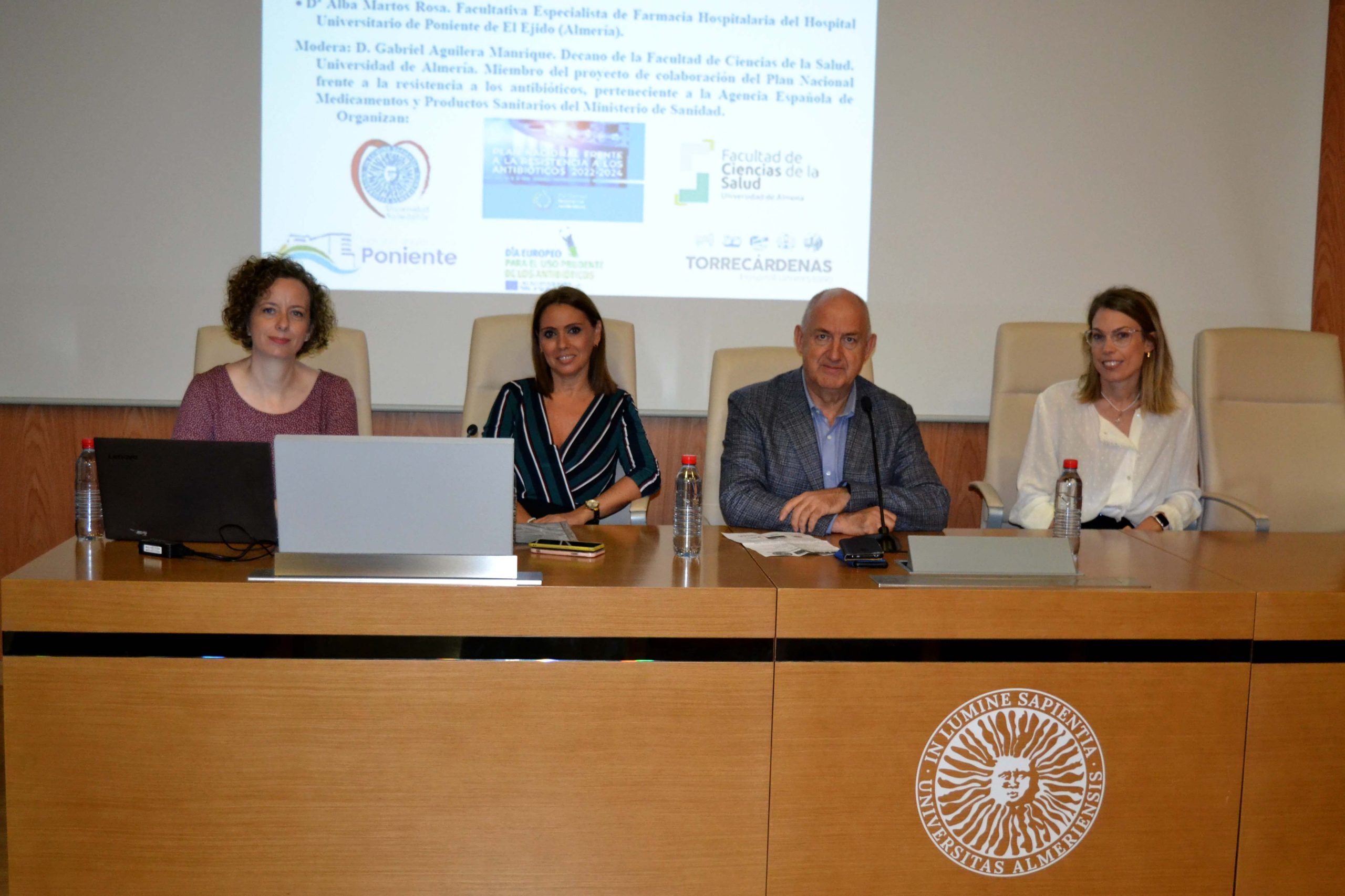
Under the theme “Communication and training: key to antimicrobial resistance”, a round table was held with the participation of experts on the subject. The event is part of the European Day for the Prudent Use of Antibiotics on 18 November.
Bacterial resistance to antibiotics is an international concern because of the risks it poses to human health. On the occasion of the European Day of Cautious Use of Antibiotics on 18 November, the University of Almeria organized a one-day round table “Communication and training: keys to resistance. Antibiotics”.
The event was chaired by Gabriel Aguilera Manrique, Dean of the Faculty of Health Sciences at the University of Almeria and member of the Spanish Agency for Medicines and Products’ National Program to Combat Antimicrobial Resistance. healthy.
“The Faculty of Health Sciences is part of the National Plan to Combat Antimicrobial Resistance and we organize this event to raise awareness among students about the importance of everything that internal medicine professionals will have to say about this topic,” said a pharmacist and a nurse. The aim is to educate them on issues such as irresponsible use of antibiotics.”
The roundtable was attended by María Ángeles Esteban Moreno, specialist in internal medicine at the University Hospital of Cardenas in Almeria Tore and member of the Integrated Program for the Prevention and Control of Infections Related to Healthcare and the Appropriate Use of Antimicrobial Agents (PIRASOA); María Victoria Martínez Miras, UGC Preventive medicine nurse, member of the Infection Committee of the University Hospital of Torre Cardenas and member of PIRASOA, Alba Martos Rosa, specialist in pharmacy at the University Hospital of El Ejido Poniente.
María Victoria Martínez Miras explains that her intervention focuses on “preventing healthcare-associated infections because we already know that the reckless use of antibiotics can lead to resistance , and new infections may arise. I will discuss the following measures: Nurses must take steps to prevent the spread of these microorganisms that are resistant to antibiotics in the hospital setting.”
Maria Angeles Esteban Moreno, a doctor in the Department of Infectious Diseases, said her job is mainly to treat hospital-acquired infections. “I’ve been working in hospitals for 12 years and more and more bacteria are becoming more resistant to antibiotics and therefore more complex to treat because although there are new antibiotics coming out of research, it’s just a matter of time for us. becomes a bigger problem. “For example, patients who come into surgery for a benign process should not be infected by bacteria that are resistant to antibiotics in the hospital setting. “In order to solve this problem, he pointed out that a series of steps must be followed. “The first is for doctors to prescribe antibiotics reasonably, the second is for users to use them correctly, and the last thing that professional units have to give is to use antibiotics correctly to prevent transmission. these infections. “
Spain has one of the highest rates of antibiotic resistance in Europe, mainly for two reasons. One of these is the use of antibiotics in both humans and veterinary medicine, and another is that the drug is not prescribed in the correct therapeutic dose, leading to its storage and incorrect use.
“The National Antimicrobial Resistance Plan has considered packaging issues to tailor the box to the duration of treatment. Self-medication is a very common activity in society, which can lead to the incorrect use of antibiotics, for example, for viral illnesses such as influenza , and when you give your neighbor too many antibiotics. All you have to do is take them to a SIGRE recycling point to recycle all the medicines, so you don’t leave them at home and avoid the temptation to self-medicate,” Poniente explains Alba Martos Rosa, hospital pharmacy specialist at University Hospital. In El Ejido…
The day is organized by the Faculty of Health Sciences of the University of Almeria, the National Plan to Combat Antimicrobial Resistance 2022-2024, the University Hospitals of Torre Cardenas and Poniente and the European Health Initiative European Day for the Prudent Use of Antibiotics .
European Day for Prudent Use of Antibiotics is an annual public health initiative in Europe, celebrated on 18 November; its purpose is to raise awareness of the threat posed by antibiotic resistance to public health and to encourage prudent use of antibiotics.
The Department of Health reminds us that antibiotics cannot treat infections caused by viruses such as the common cold or flu, but are only effective against bacterial infections. Proper diagnosis and the decision to use antibiotics are entirely the responsibility of your doctor, and following their advice. Furthermore, he maintains that incorrect use of antibiotics only makes bacteria resistant to these drugs, so if antibiotics are needed in the future, they may no longer be effective. This poses a health risk not only to the person who takes antibiotics inappropriately, but also to others who may later become infected with drug-resistant bacteria. We all have a responsibility to ensure antibiotics remain effective, they warn.

